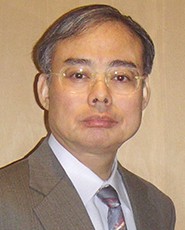Message from the Area Director

OMORI Takashi
Former Chair of Economic Committee, Asia-Pacific Economic Cooperation and
Former Professor of Osaka University
It has been a while since people recognized the importance of "sustainable society." Since then, there have been advances in science and technology, accumulation of capitals, and introduction of new systems. However, unfortunately we cannot say that the sustainability of our society was enhanced. There are many global environment issues which continue to deteriorate. Fiscal debt in Japan is growing rapidly, at a pace exceeding the economic growth. There is a concern on the sustainability of many rural communities due to depopulation. The gap between the rich and the poor has been widening in many advanced countries.
It is known that after a certain income level is attained, the subjective happiness and life satisfaction do not improve much with income increase. Although Japan seems to have entered that stage, we cannot ignore that the level of anxiety of Japanese people shows an increasing trend. More often than before, people say that "the world is becoming degenerated" or "things are tough nowadays." These vague senses of anxiety seem to be deeply related to the issue of sustainability.
There are various possible approaches to build a sustainable society. I would like to pay respect to many people who are making efforts on respective themes in their own ways. In our Area, we focus on an attempt to build a sustainable society with the method of "intergenerational co-creation." Sustainability does not mean to keep on repeating the same thing; it is necessary to closely examine what should be changed and what should be maintained. Consensus needs to be formed in the society, as to what should be passed onto the future generation, despite the large uncertainty we face.
In the old days, there was not much distinction between production and living space, and people of various generations cooperated in many ways at home and communities. In such society, people were aware that they were in charge of a slice of eternal history called "now." Such opportunities decreased with the advent of mass production, nuclear family, urbanization, and globalization; meanwhile, recent progress in information and communication technology seems to have a potential to enable people to deepen the bond and help one another in new ways.
We will keep on striving toward a new way of life which can make people feel secure that the prosperity of humankind will continue, by developing appropriate science and technology to this end.
